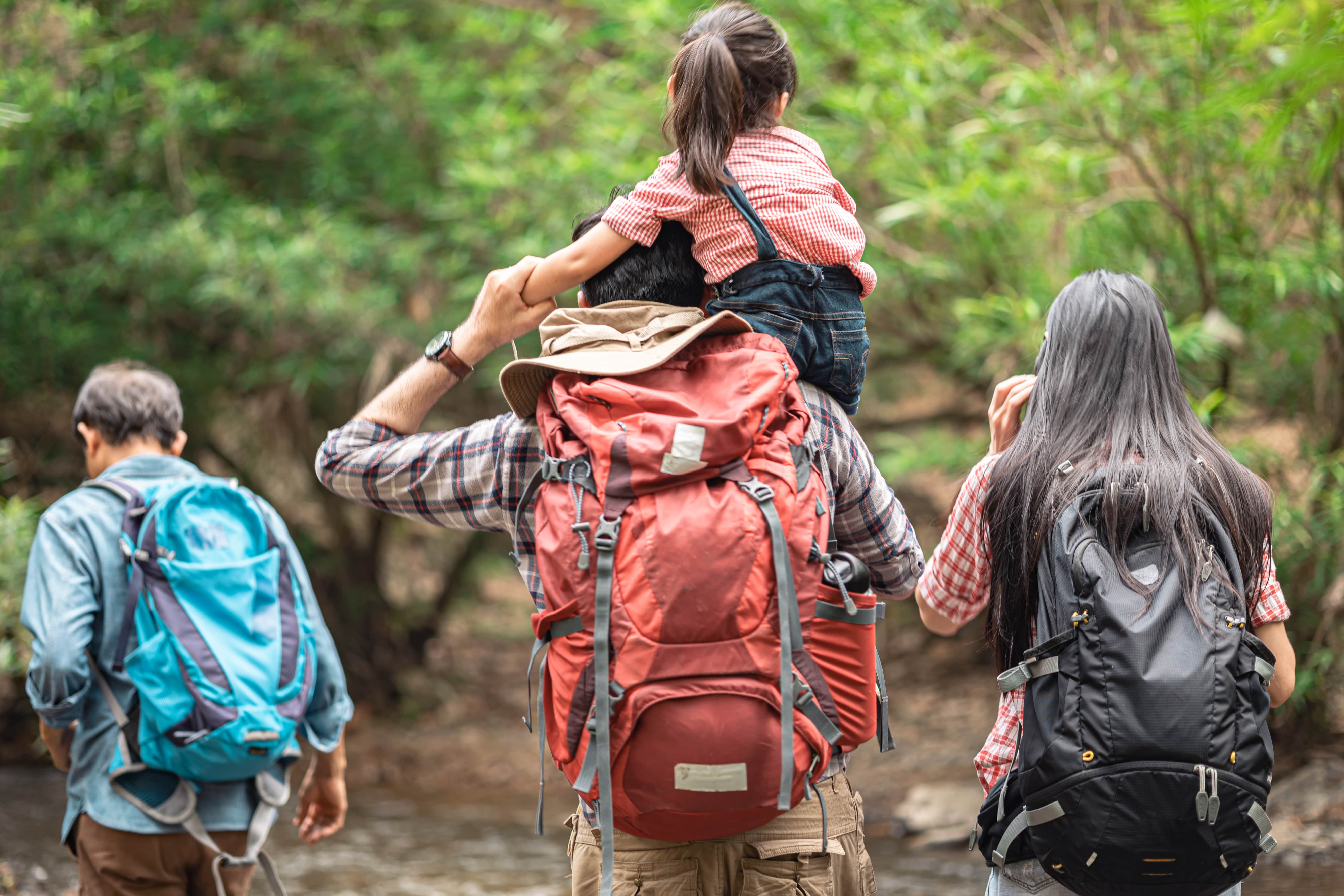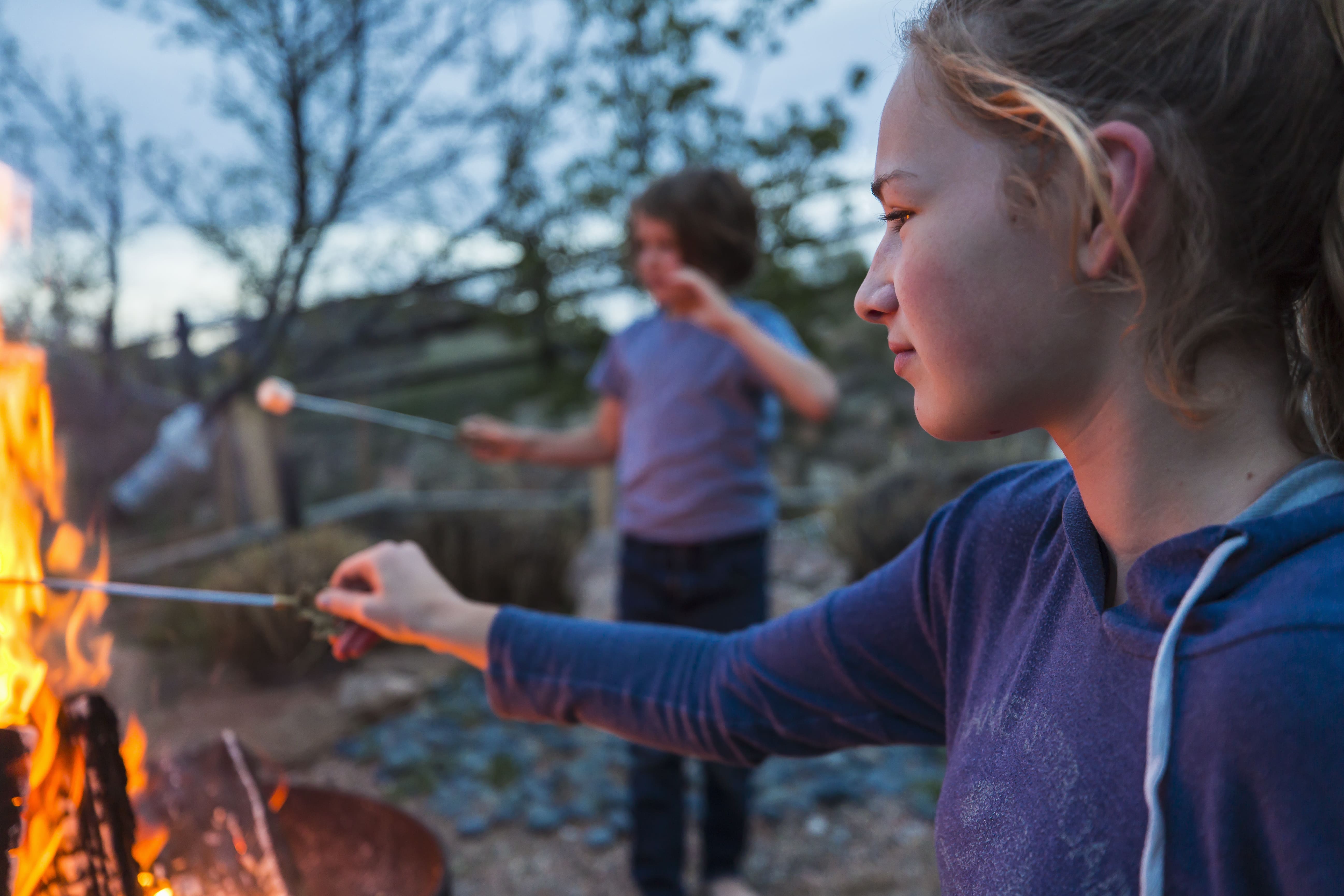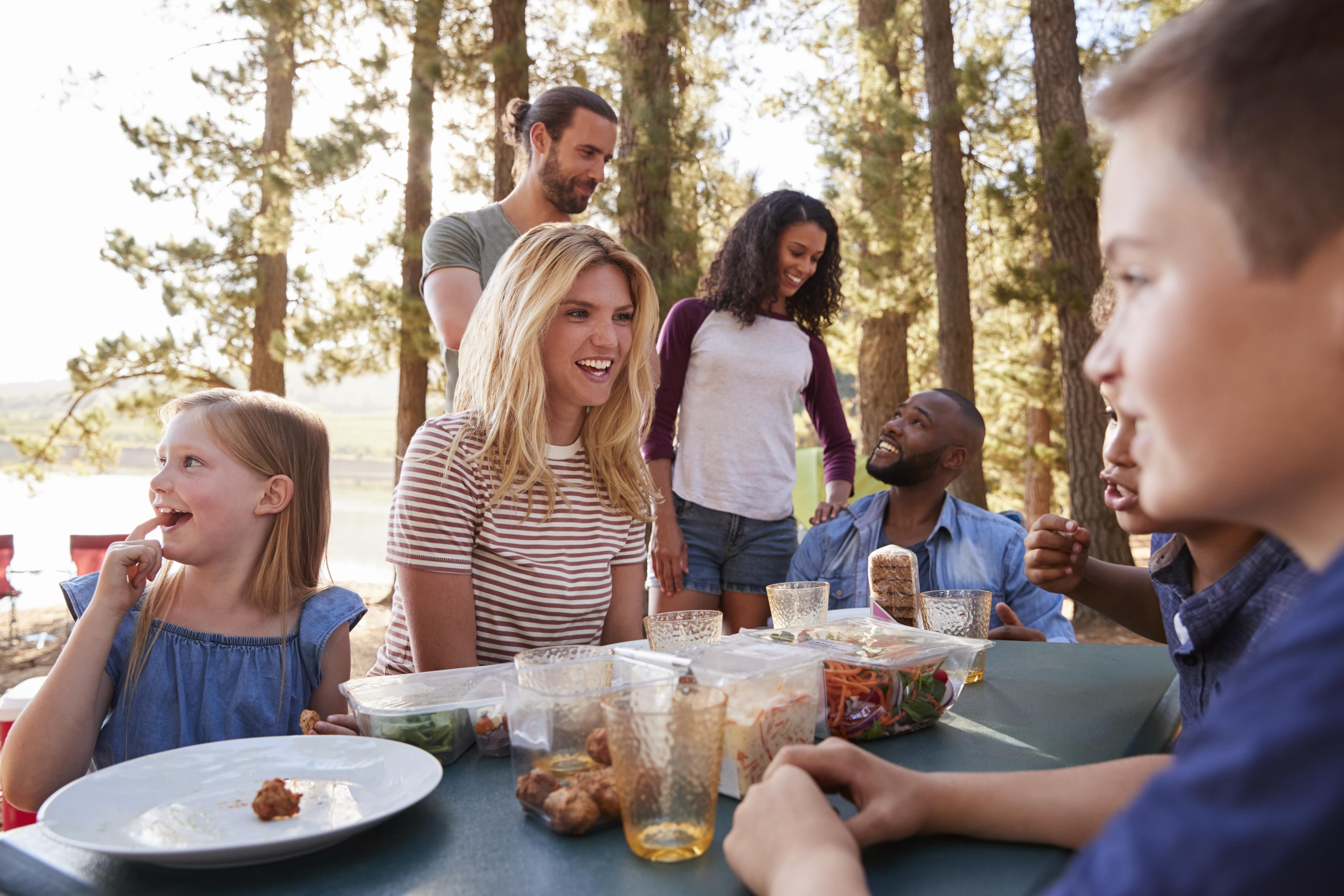Think it’s time to finally give the kids a taste of the great outdoors? Want to make it such an unforgettable experience that they’ll be asking for more family camping time?
Camping with the little ones can be exciting and challenging for those just starting out, so we want to make sure you can tackle it front-on with all the advice you could possibly absorb. Keep on reading to see what our favourite tips and tricks for camping with the whole family are, and remember, each experience is a learning opportunity to see what works for your family!
1 Trial the experience
If you’re intending to camp with younger children, you may find it beneficial to trial the experience with them first in the comfort of your own backyard. By setting up camp in familiar surroundings, your children will get to be exposed to the sounds of the night and the thrills of camping.
Once they seem more at ease after a few trial nights, be sure to trial more controlled campgrounds before introducing them to a more rugged forest experience.
2 Plan ahead
It always pays to plan ahead before you hit the road, especially if you’re bringing your kids along. This will make sure you’ll be able to prepare accordingly and will also give you some peace of mind that you’ll have made all the major decisions prior. Some things to consider:
Where you’ll be camping
Once you decide where you would like to set up camp, do your research into the safety and park warnings before visiting so you know if there are any harsh weather conditions or wildlife you’ll need to be mindful of. Have a conversation with your children about what you find so they are also aware.
It’ll also pay to look into what facilities and activities are readily available at the campsite, phone reception, and if you need to purchase any booking permits and camping lots. You’ll also want to have a search for nearby stores and petrol stations so you’ll know where you can go if you need any essentials or even just for the good ol’ pitstop moments when you’re on the road.
Camping equipment and vehicle check
Make sure your tent and sleeping bags are all in top condition, see if your car or campervan/caravan/trailer needs to be serviced or identify if there are any issues e.g. checking the batteries, checking the engine.
If you are heading to a destination that has a lot of salt air/spray exposure you will also want to get protective treatment for your vehicle to minimise damage to the exterior.
Packing list
Make a checklist of the essential items you will need! Examples include:
- Well-equipped first aid kit
- Any medical essentials (asthma puffer, EpiPen, and for general ailments like headaches, coughs, colds, diarrhoea)
- Sun protection (SPF50+ sunscreen for face and body, protective clothing)
- Bug repellant
- Snacks (fruit, muesli bars, popcorn)
- Clean socks, underwear, PJs, general clothing for all weather conditions (raincoat, gumboots, windproof jacket)
- Generator (for backup)
- Rubbish bags - always leave no trace wherever you go
- Torch (with spare battery)
- Washing line to dry your clothes
- Wet wipes
- Full water tanks, drinking water, and food supplies (aim for less perishable food and decide beforehand what kind of recipes/meals you want to cook)
- Entertainment/activities in case of wet weather e.g. playing cards, books
You can find a more extensive list in one of our other blog posts
here.
Be sure to also pack the following for your vehicle to avoid any mishaps or break-downs: spare tyre, tool kit, tyre pressure gauge, air pump, tow rope, snatch strap, D shackle, traction mats (in case you get stuck in soft sand), shovel.
3 Aim to arrive before dark
Arriving before the sun sets is the best plan of attack if you’re bringing your kids along with you for the first time. This gives them the chance to soak in their surroundings, and will also give you all enough time to set up your camp in daylight.
Be sure to involve them in the process as well! No matter how old or young your children are, they’re bound to feel more involved with the experience if they’re given the opportunity to help out. It could be as simple as toasting marshmallows and setting up the tent with you.
4 Talk to your kids
Sounds simple enough but it’s always important to communicate with your kids and make sure that they’re understanding of camp etiquette and also safety. Having a conversation with them before hitting the road is one thing, but it’s important to have the same conversation again once you arrive as they now have visual cues to support your concerns.
- Set distance boundaries around your campsite so they know where they can venture off to without too much of your supervision and what to avoid e.g. bodies of water, cliff edges, destroying cultural artefacts, eating anything from the woods, don’t feed or touch any animals. For added peace of mind, give your children a whistle that they can wear around their necks.
- Make sure they’re aware of other vehicles in the campsite.
- Teach them camp etiquette e.g. don’t run through other people’s campsites or invade their personal space unless welcomed, don’t make too much noise upon waking up, how to dispose of rubbish appropriately, educate them on campfires.
- Practice nighttime safety in a fun manner by using glow sticks or headlamps!
5 Be prepared for the mess
Kids are full of energy and love to get their hands dirty. While playing in nature can be all fun and games, you want to make sure you’re not bringing dirt and mud back into your sleeping area!
You can avoid this by setting up a simple hand and foot washing station at the entrance of your campsite, or if you’re at a campsite with showering facilities be sure to bring them there first. If you’ve got any of our ORCA RV campers, we’ve fitted ours with an external sink as well as switches for our water tanks so you’ll be able to do this with ease.
As mentioned above, we highly recommend bringing wet wipes and antibacterial wipes to clean off the majority of the mess before using water. This will help you reduce water usage and can ensure you have enough water for the essentials.


